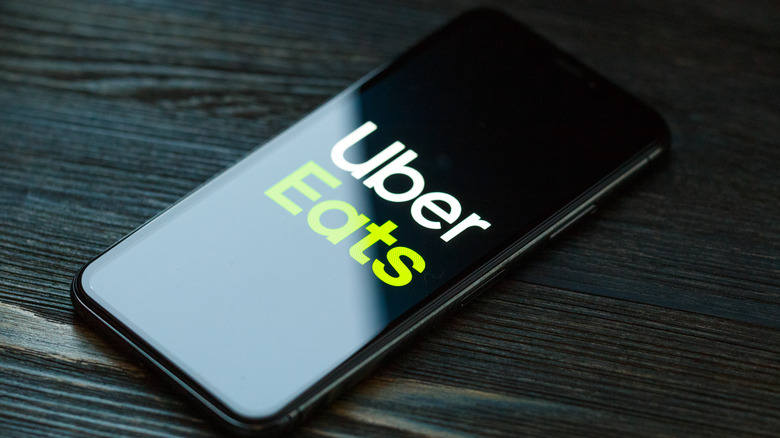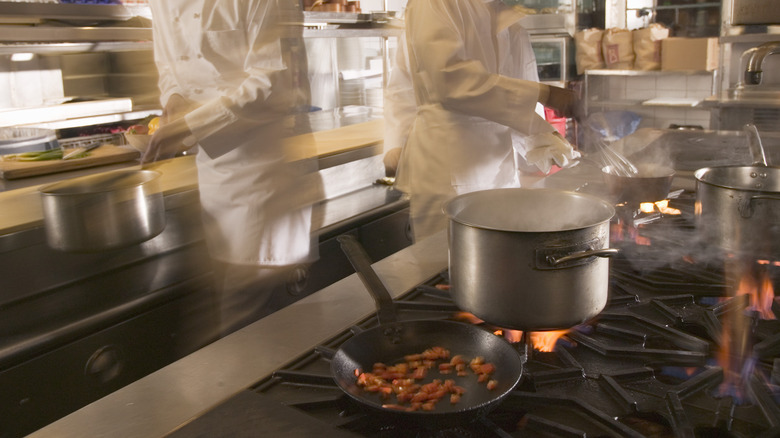Uber Eats Is Cracking Down On 5,000 Ghost Kitchens In Reorganization Effort
Ever ordered a burger and side of fries from seemingly indie restaurant The Burger Den and later found to your disappointment that you actually ordered from breakfast chain Denny's? While it's an open secret, The Burger Den is the just one of thousands of ghost kitchens that have been popping up throughout the country.
Ghost kitchens, also known as cloud kitchens or commissary kitchens, have set up shop in recent years on online ordering and delivery platforms. Ghost kitchens are essentially virtual kitchens that don't have a physical eating area and are run out of practically anywhere, such as an existing restaurant. While many ghost kitchens are small businesses looking to expand their profits, a few are set up by large, well-known food chains, such as Denny's, Chick-fil-A, and Chuck E. Cheese.
If it seems like there are a bunch of strange restaurants suddenly popping up on Uber Eats, it's because it has. There are more than 40,000 virtual brands on the food ordering and delivery app, according to The Wall Street Journal, which is an increase from just 10,000 ghost kitchens in 2021. According to the WSJ exclusive report, Uber Eats is planning to remove 5,000 ghost kitchens off of its platform. That's roughly 13% of all ghost kitchens operating on the app.
Plus, stricter guidelines for ghost kitchens
John Mullenholz, who oversees virtual restaurants at Uber, tells The Wall Street Journal that Uber Eats is targeting "online-only brands with duplicate menus." Those being wiped out off the platform includes "12 virtual brands selling identical breakfast burritos from a Colorado sports bar; 14 brands serving the same sandwiches from a New York City deli; and online-only options from a San Francisco-based Pakistani restaurant that, at one point, replicated its menu 20 times."
In addition to axing some ghost kitchens, Uber Eats has implemented stricter guidelines for ghost kitchens. A menu of a ghost kitchen needs to be at least 60% different from the menus of other restaurants, including the parent restaurant, that operate out of the same location, according to The Verge. A ghost kitchen and its parent restaurant must sustain a rating of 4.3-star rating or higher or they will face the potential to be dropped from the platform. Ghost kitchens must also have less than 5% inaccuracy and cancellations of received orders.

